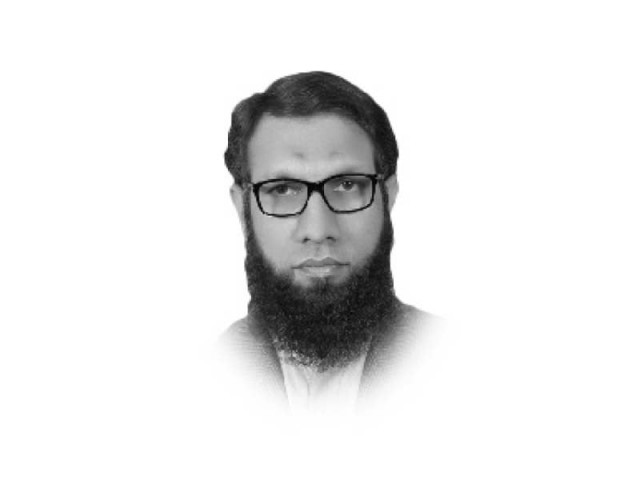From old to new to no order
While Pakistan has yet to fall into the category of a failed state it has all the symptoms of a weak state

Pakistan was not destined to be what it has sadly become thanks to a zigzag path that it has followed since its inception. The political disarray, economic turmoil and social fragmentation it has plunged into are not the outcome of one wrong decision. All this is the cumulative effect of a series of strategic blunders with no introspection ever done to learn from them. Now the country finds itself bogged down in the old, the new and no order — all at the same time with no signs of sailing through the stormy waters so easily.
The old order started with bureaucrats and military generals (trained in the British tradition) calling the shots and looking upon the political class as corrupt, unpatriotic and inept who could not be trusted to govern the nascent state. Both the ruling cliques, who had roots in the feudal structure of society, outmanoeuvred politicians in the power corridor and managed to rule the country without a Constitution until 1956. As if it was not enough, the political order took a different shape and the military formally took over the reins until 1971 when things turned so ugly that the Eastern wing had to fly alone.
With an interval of a few years of hibernation and having suffered humiliation, the powerful military resumed the old order after overthrowing the civilian government with support, this time, from Mullah who was waiting in the wings for a strategic role. The Mullah-military alliance (the new face of Pakistan) made itself relevant internally and externally using religion as a rallying cry and the strategic location as bastion for amassing power and wealth they would not have ever imagined. This unholy alliance did immense damage to the country’s soft image and created deep fissures in the social fabric as a result of rising extremism and sectarianism.
The old order suffered a blow after the end of Cold War and disintegration of the USSR. The Mullah-military alliance could not sustain thanks to the New World Order popping in the West. This indigenous new order envisaged the end of history and liberalism (a system of free market economy, democracy and secularism) as panacea for all economic, political and social problems. A different new order started in the 1990s in Pakistan reflecting the global realities and local conditions. It was to bring in a new era of progress premised on constitutionalism, social welfare and peaceful co-existence with neighbours.
It was the beginning of a hybrid system of governance with real power still residing in the GHQ. In a span of ten years, four civilian governments were sent packing on charges of corruption and bad governance before the full-scale military rule returning in 1999. The new order (hybrid dispensation), however, continued until recently when Imran Khan was ousted in 2022 causing immense public resentment never seen before. IK’s ouster was perceived across the country and even outside by the Pakistani diaspora as a blatant display of authoritarianism and kleptocracy acting hand in glow against the public aspirations and interests.
The new order is now in a shambles thanks to the global strategic landscape (causing economic meltdown), the advent of social media (empowering citizens to express views freely and hold the powerful to account) and the youth bulge (aspiring for dignified life as others in the world). No one seems in charge of the national affairs. The Parliament is and never was a true representative of the people of Pakistan. It has yet to carve out a strategic direction for the country. The Executive is and never was a politically neutral organ of the state so that it could execute policies in letter and spirit following the principles of good governance. And the Judiciary has, sadly, reduced itself to irrelevance as a result of internal division and intrusion in political/executive spheres.
While Pakistan has yet to fall into the category of a failed state — the no order stage — it has all the symptoms of a weak state. We have yet to set our country’s direction right in terms of reconciling its ideological roots with the demands of globalisation, balancing various competing institutional forces and, most importantly, working on a new blueprint for social harmony.
Published in The Express Tribune, May 16th, 2023.
Like Opinion & Editorial on Facebook, follow @ETOpEd on Twitter to receive all updates on all our daily pieces.















COMMENTS
Comments are moderated and generally will be posted if they are on-topic and not abusive.
For more information, please see our Comments FAQ